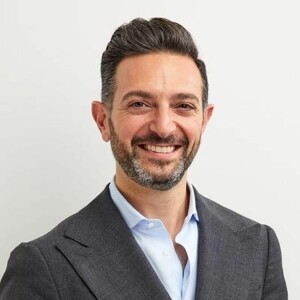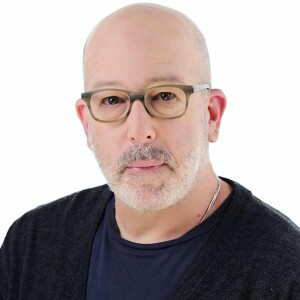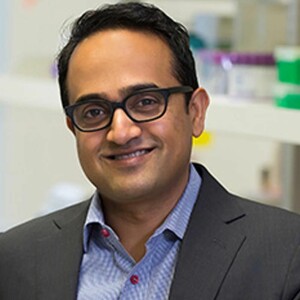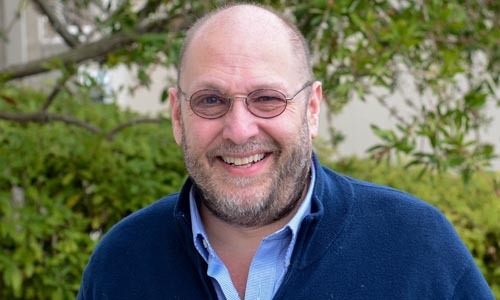Episodes

Wednesday Jan 25, 2023
Changing Outcomes with Data
Wednesday Jan 25, 2023
Wednesday Jan 25, 2023
Providers hold vast amounts of health data that can be harnessed to gain better insights into diseases, improve outcomes for patients, and help bring about an era of precision medicine. Despite advances in artificial intelligence to capitalize on these stores of data, much of it has remained siloed and out of the reach of researchers and drug developers who could put it to use. Last year, a group of 14 health providers caring for tens of millions of patients through thousands of care facilities across the country formed Truveta, a company that has built an AI platform to make structured and de-identified patient data available for research. We spoke to Terry Myerson, CEO of Truveta, about its platform technology, the work it is enabling today, and how AI and the availability of real-world data is changing how biomedical research is conducted.

Thursday Jan 19, 2023
Treating Psychiatric Conditions with Tripless Psychedelics
Thursday Jan 19, 2023
Thursday Jan 19, 2023
There’s been growing interest in exploring the potential of psychedelics to treat neuropsychiatric conditions. Onsero Therapeutics is part of a growing list of companies that are developing therapies that target the 5-HT2A serotonin receptor, the receptor to which several of psychedelics bind, and one that has been clinically validated in a number of psychiatric conditions. The company believes the therapies it’s developing have the potential to provide the treatment benefits of these substances without their better-known effects. We spoke to Tim Piser, chief scientific officer of Onsero, about the case for these drugs to treat conditions like mood disorder, how it’s developing its experimental therapies so they don’t induce effects, and why he believes benefits of these drugs can exist independently of them packing a psychedelic punch.

Thursday Jan 12, 2023
How AI Is Finding Its Way into Unexpected Places in Biopharma Companies
Thursday Jan 12, 2023
Thursday Jan 12, 2023
When people think of the potential for artificial intelligence to impact the biopharmaceutical industry, the focus is usually on drug discovery or in the clinic to help guide decision making with regards to pairing the right drug to the right patient. Yseop is focused on a more mundane use for the technology—the writing of clinical data reports. The company had been working in the financial services industry when it was approached by Sanofi to see if it could apply its natural language generation to make the creation of these reports faster and less expensive. We spoke to Emmanuel Walckenaer, CEO of Yseop, about artificial intelligence, its potential to change the way biopharmaceutical companies work in non-obvious ways, and why a large number of biopharmaceutical companies are turning AI to do more with less.

Thursday Jan 05, 2023
Searching the Dark Matter of the Proteome to Develop New Therapies
Thursday Jan 05, 2023
Thursday Jan 05, 2023
ProFound Therapeutics has developed platform technology to catalogue and understand previously undetected human proteins and the role they play in health and disease. By focusing on proteins in the process of translation, the company said it has identified tens of thousands of undiscovered proteins that can provide untapped therapeutic targets. We spoke to Avak Kahvejian, co-founder and CEO of ProFound Therapeutics, about the company’s platform technology, the vastness of the unexplored proteome it seeks to discover, and how this can lead to the development of breakthrough medicines.

Thursday Dec 29, 2022
The Year in Biotech and What’s Ahead in 2023
Thursday Dec 29, 2022
Thursday Dec 29, 2022
It was a difficult year for biotechs with drops in the major biotech indices, fewer new drug approvals, and more than 125 companies announcing layoffs. But there were also triumphs to celebrate. We continue our annual tradition of ending the old year and ushering in the new one with Adam Feuerstein, Polk Award Winning journalist and senior biotech writer for STAT. We discuss the good, the bad, and the ugly of biotech in 2022; Feuerstein’s annual best and worst CEO list; and what’s ahead at JPMorgan and beyond in 2023.

Thursday Dec 22, 2022
Targeting a Novel Checkpoint to Treat Cancer and Autoimmune Conditions
Thursday Dec 22, 2022
Thursday Dec 22, 2022
Checkpoint inhibitors are not new, but Immutep is developing therapies that target LAG-3, a checkpoint discovered by its chief scientific officer. The LAG-3 gene codes for a protein that plays a role in the regulation of the immune system and is expressed on T cells. Immutep is seeking to target LAG-3 to both stimulate the immune system to treat cancers and suppress the immune system to treat autoimmune disease. We spoke to Marc Voigt, CEO of Immutep, about the LAG-3 checkpoint, the company’s lead experimental candidate, and its partnerships with GSK and Novartis to develop therapies for cancer and autoimmune diseases.

Thursday Dec 15, 2022
The Growing Need for Biosecurity Vigilance
Thursday Dec 15, 2022
Thursday Dec 15, 2022
The ability to engineer biology is not only revolutionizing how we treat illness, but the way grow food, and produce goods as well. With this ability, though, comes an awareness of how the same technology can be used for nefarious purposes. We spoke to Matt McKnight, general manager of Biosecurity of Ginkgo Bioworks, about our increasing ability to engineer biology, the potential risks that come with that, and the steps we are taking to safeguard ourselves against those risks.

Thursday Dec 08, 2022
Enlisting Next-Generation Cytokine Immunotherapies in the Fight Against Cancer
Thursday Dec 08, 2022
Thursday Dec 08, 2022
Cytokines control nearly all aspects of the immune system. As drugs, though, they have limited potential because of inherent drawbacks. Simcha Therapeutics is engineering versions of cytokines to activate various immune cells in the fight against cancer. Simcha’s most advanced program, ST-067, is the first in a new class of interleukin-18 based immunotherapies designed to overcome a key defense mechanism that the tumor microenvironment produces to prevent Interleukin-18 from doing its work. We spoke to Sanuj Ravindran, CEO of Simcha Therapeutics, about the company’s engineered cytokines, how they work, and why they may represent a powerful addition to the immunotherapy arsenal.

Daniel Levine
Daniel Levine is an award-winning business journalist who has reported on the life sciences, economic development, and business policy issues throughout his career. He is founder and principal of Levine Media Group, host of The Bio Report and RARECast podcasts, a senior fellow at the Center for Medicine in the Public Interest, and author of Global Genes’ annual NEXT report on emerging trends in the world of rare disease. From 2011 to 2014, he served as the lead editor and writer of Burrill & Company’s acclaimed annual book on the biotech industry. His work has appeared in numerous national publications including The New York Times, The Industry Standard, and TheStreet.com.

